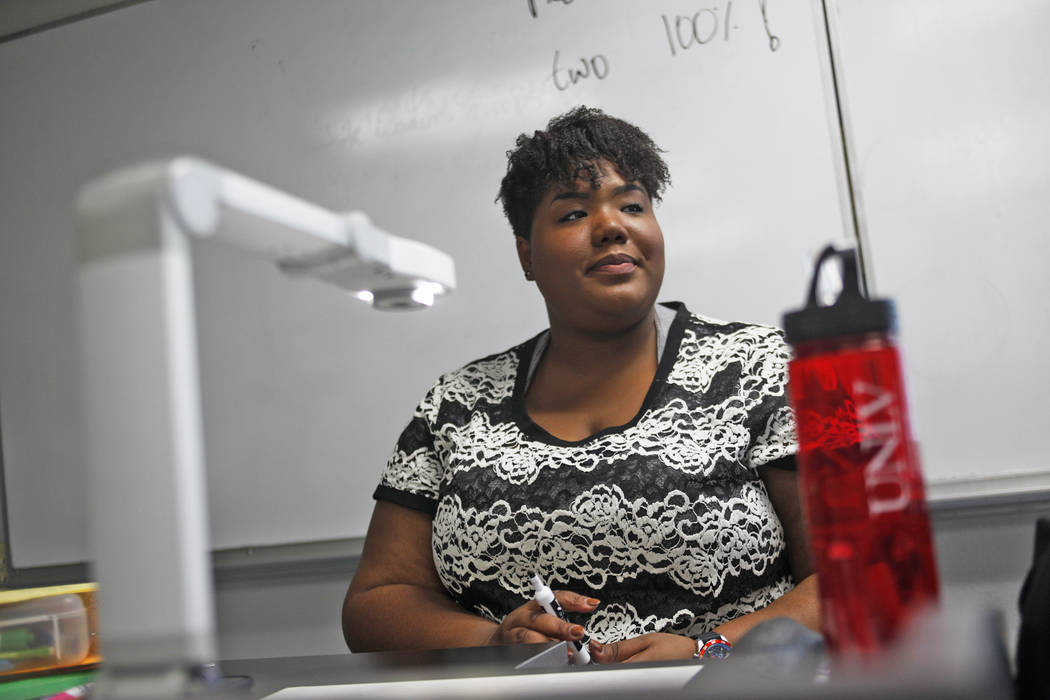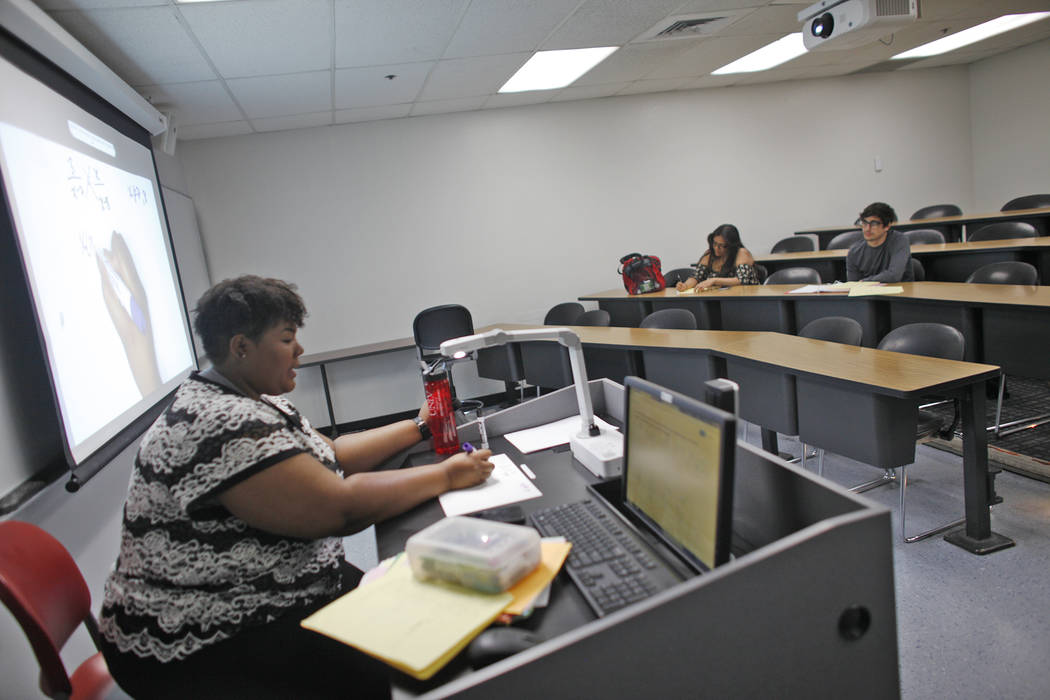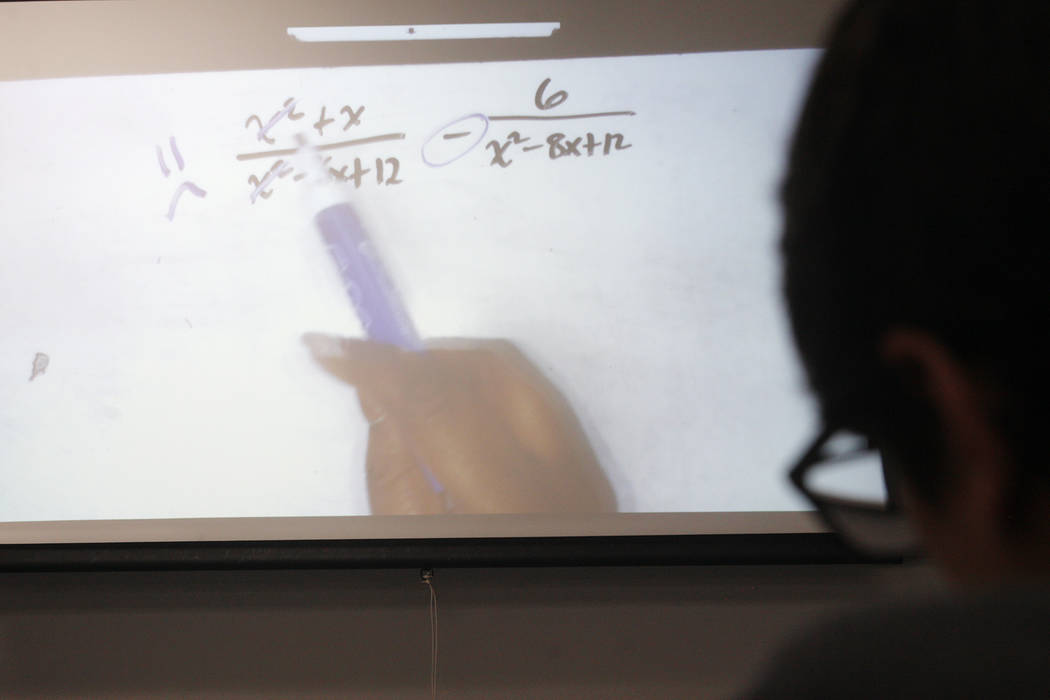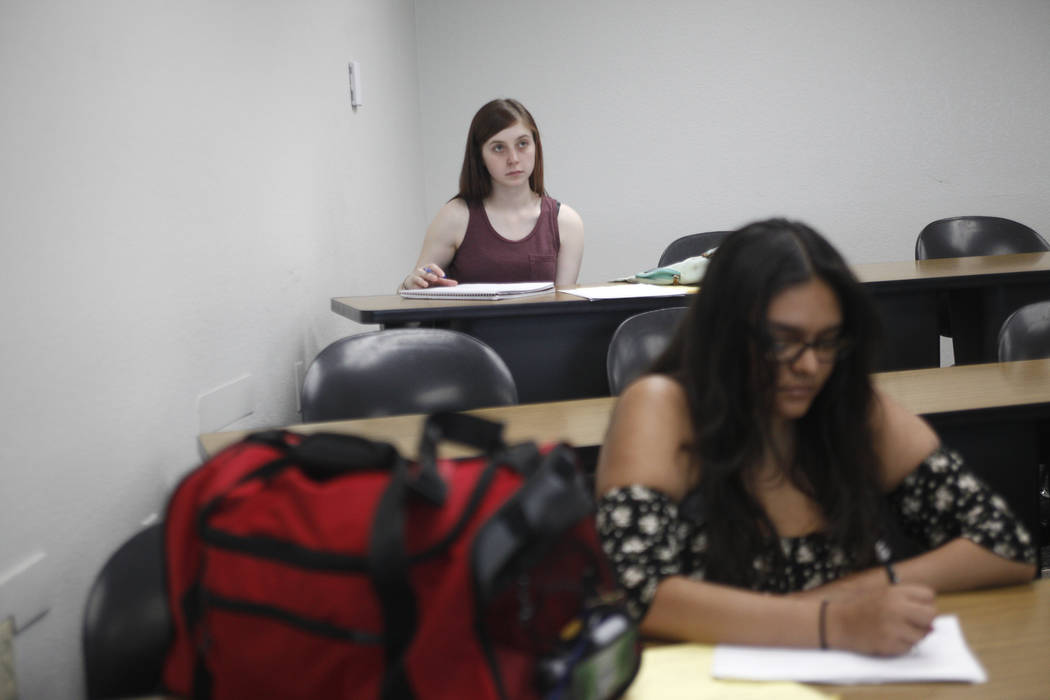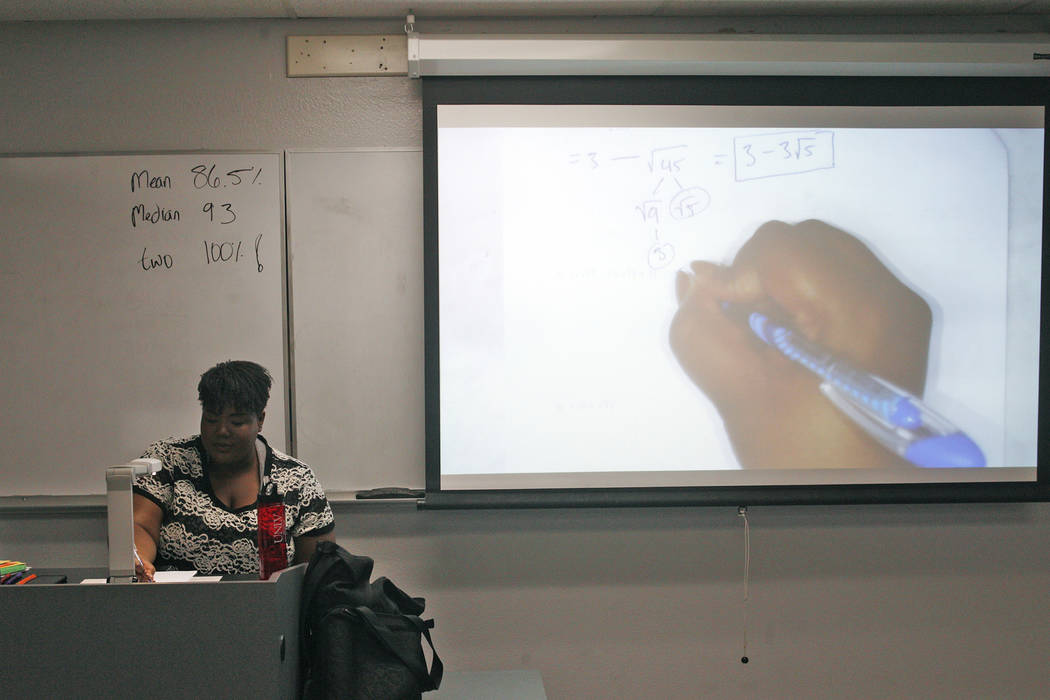Nevada students find themselves in a state of remediation
In a small classroom at UNLV, the four students who showed up to Chyna Miller’s Math 096 class are learning algebra.
She’s reviewing a fraction problem on a recent exam, probing students for an answer.
“We’re subtracting two fractions,” Miller says, “which means we have to have a common — ?”
The class is a remedial course — one for students who scored low on the SAT or ACT, or on a placement test administered upon entry into college. Such classes prepare students for the college-level work that these tests determined they are not yet ready to tackle.
But because those courses do not count toward a degree, students may have to spend more time and money to graduate from college.
Across Nevada, these students are not alone — 53 percent of 2015 high school graduates who enrolled in any of the seven degree-granting state institutions ended up in such courses, according to Nevada System of Higher Education data.
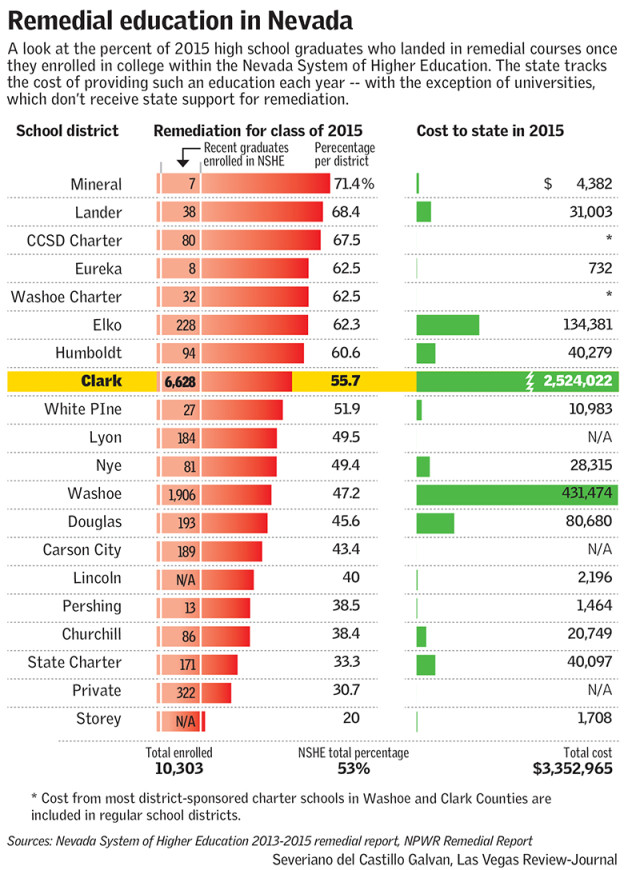
In Clark County, the state’s largest district, 55.7 percent of 2015 graduates landed in remedial courses.
Yet it’s a problem that’s not unique to Nevada — nationwide, about 68 percent of students who entered public two-year institutions in 2003-2004 took at least one remedial course from 2003-09, according to a 2016 National Center for Education Statistics report. At four-year public institutions, that number was 40 percent.
The numbers present a broader question on the higher education and K-12 connection: Armed with a high school diploma, are Nevada students really prepared for the rigors of college?
Graduating unprepared
UNLV sophomore Joanna Ruiz, 20, is majoring in physics. In Math 096, however, she’s reviewing algebraic fractions.
She scored low in the SAT math section, she said, and didn’t think she’d be prepared for the college-level courses.
“This class kind of helped me just to get the idea of how it will be later on in my career,” she said.
In Nevada’s higher education system, “prepared” mainly means scoring high enough on the ACT or SAT.
For the ACT, those benchmarks are 22 in math and 18 in English. For students who took the SAT in March 2016 or later, they are 530 in math and 480 in critical reading. Scores from the standardized tests Smarter Balanced or PARCC exams can also count.
Students who reach those benchmarks must be placed in college-level courses. Each institution, however, can determine its own placement policies for students who test below those scores.
In a K-12 culture that emphasizes graduation rates as a measure of success, ensuring that students score high enough is another challenge.
“We’ve got a long way to go to push remediation rates,” said Clark County School District Chief Student Achievement Officer Mike Barton. “It’s definitely a data point that we need to continue to look at and improve.”
The small Catalyst Program, which the district operates with the College of Southern Nevada, will prepare seniors to test into college-level courses this summer.
But if students are still not prepared, Nevada’s higher education system picks up the pieces.
The state tracks the cost of providing remedial education to its students every year — with the exception of universities, which don’t receive state support for remediation. Those costs range from $732 for Eureka County to $431,474 for Washoe and $2.5 million for Clark.
Yet students also end up paying the price. At community colleges this year, courses are $91.50 per credit. Costs at four-year institutions can vary — at Nevada State College, the current cost is $161 per credit.
Crystal Abba, vice chancellor for academic and student affairs at the Nevada System of Higher Education, said adopting the Common Core State Standards may help the issue.
“The purpose of the Common Core State Standards was to align higher-ed with K-12 in terms of the expectations of college readiness,” Abba said. “I think over time, as those students get more exposure to the Common Core over the breadth of those K-12 experiences, you should see those rates come down.”
But part of Ruiz’s story highlights another challenge: getting high school juniors to care about college entrance exams.
Carl Reiber, senior vice provost at the University of Nevada, Las Vegas, said high schools don’t emphasize the importance of the ACT, which all students are required to take.
“You have to take it, but there’s no minimal score you have to have to get into UNR or UNLV,” he said. “Many of the high schools counselors and teachers, many of the high schools — they don’t emphasize the importance of the ACT in terms of placement into math and English.”
The K-12 disconnect
When UNLV freshman Ashleigh Bivins took the ACT, she didn’t take it seriously enough.
“I just figured, oh if I didn’t do that well, I could just pay to retake it or pay to take the SAT,” said Bivins, who graduated from Coronado High School. “I ended up doing well enough on it to get into UNLV.”
But when she got there, she was placed in a remedial math class that covered topics she learned as a high school freshman, she said. She paid to take a placement exam to test out of the course.
Placement practices are one aspect of the issue, said Nikki Edgecombe, a senior research scientist at Columbia University’s Community College Research Center who has closely studied remedial education .
“The remediation rates you see, which are very high … may be based on at best vulnerable and at worst wholly inaccurate assessment and placement systems,” Edgecombe said.
That’s partially why Nevada State College has changed its placement practice, adopting a program known as EdReady that reviews content with students over the summer. Of 112 students who tried the test, 62 improved their placement, Interim Provost Tony Scinta said.
“It kind of suggests that some of the systems that we’re using to place students in remediation may not be the best systems,” Scinta said. “Because students can perform at a higher level as long as they take some time to practice and work out the kinks.”
Another issue, Edgecombe noted, is the misalignment between high school exit standards and college readiness.
“There’s different systems, they operate on different funding mechanisms, they operate in different policy contexts,” she said.
A remedial course could delay Ruiz’s path toward graduation, but she doesn’t seem to mind.
“As long as I get my degree, and I get what I really want in life, then that’s all that matters.”
Contact Amelia Pak-Harvey at apak-harvey@reviewjournal.com or 702-383-4630. Follow @AmeliaPakHarvey on Twitter.



